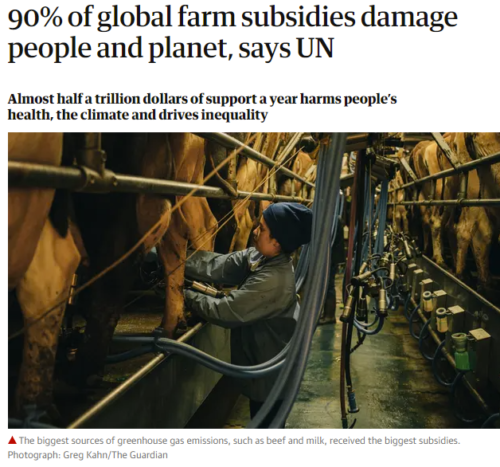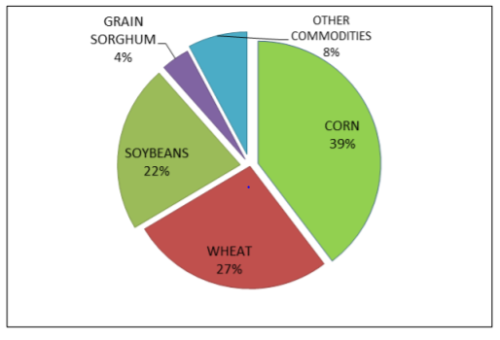Join Health Affairs for a virtual conversation between me and Angela Odoms-Young of Cornell University discussing the evolution of US food and nutrition policy, the current policy landscape, and thoughts on what lies ahead. It’s at 1:00 p.m. EDT. To join the Webinar, click here.
Agricultural subsidies do more harm than good?
I saw this headline in The Guardian.

I went immediately to the UN’s Food and Agriculture Organization (FAO) report: A multi-billion-dollar opportunity – Repurposing agricultural support to transform food systems.
The trends emerging from the analysis are a clear call for action at country, regional and global levels to phase out the most distortive, environmentally and socially harmful support, such as price incentives and coupled subsidies, and redirecting it towards investments in public goods and services for agriculture, such as research and development and infrastructure, as well as decoupled fiscal subsidies.
The report detail the harmful effects of current agricultural subsidy practices in promoting crops that are harmful to human health and to the environment.
Most support worldwide, through price incentives, has been given to commodities with high GHG emissions such as beef, milk and rice, which have the largest carbon footprint.
In the US, the distribution of agricultural subsidies looks like this:

The main effect of subsidies is to cause farmers to plant more of whatever gets subsidized. One result is that corn, a water-intensive crop, is grown in places where water is scarce.
Farm income reached record levels in 2020, but one-third of farm income came from government payments (nearly $46 billion in total), largely because of increases during the pandemic.
FAO’s Recommendations
- Phase out the most distorting and environmentally and socially harmful policies, such as price incentives or coupled subsidies.
- Repurpose support for high-emission or unhealthy products towards support that has environmental and health conditionalities and that promotes more sustainable food systems.
- Repurpose fiscal support to protect consumers and ensure food security and nutrition, especially for the poorest.
- Create fiscal space for agricultural support by tapping into new fiscal resources aimed at addressing climate change or stimulating the economy.
Good ideas, but good luck getting them implemented. Lobbyists for corn, ethanol, soybeans, and the like prefer to keep those subsidies coming, and they have huge power over Congress.

